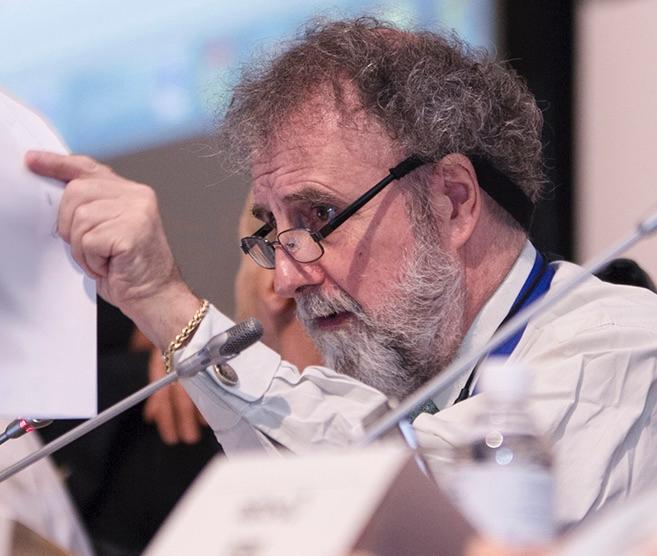Almost one million people are calling on governments around the world to protect half the earth to stop the extinction crisis threatening humanity, Avaaz said on Friday, March 23, 2018, as a landmark scientific study warned that biodiversity loss is accelerating at a dangerous rate.

A devastating new assessment by the Intergovernmental science-policy Platform on Biodiversity and Ecosystem Services (IPBES), shows that all over the world, biodiversity is collapsing, and this crisis now threatens human wellbeing. Four reports were produced by 550 scientists from 100 countries who have taken three years to document the status of biodiversity for Africa, the Americas, Asia-Pacific and Europe and Central Asia. These are the most important biodiversity reports in a decade.
Nearly one million people, from every country on Earth, have joined an Avaaz petition calling on governments to tackle the biodiversity crisis by supporting a plan, championed by prominent biodiversity scientists, to protect half the planet from human exploitation, enabling our Earth’s ecosystem to stabilise, regenerate and recover.
Alice Jay, Campaign Director for Avaaz, said: “Humans have been taking a chainsaw to the tree of life. The extinction crisis has officially joined the climate crisis as a major threat to our future. Top scientists, backed by a million people, are now calling for half the earth to be protected so we can survive, thrive and live in harmony with nature.”
Top scientists and conservationists say that protecting half the Earth is critical to saving 80-90% of all species. Studies show that between 39-44% of the planet is mostly wild. The aim is to protect these areas and restore and protect others. The target is to reach 50% protection of land and sea by 2050, focusing on key ‘biozones’ of high biodiversity value. The protection would include indigenous land, productive buffer zones, corridors, and private conservancies.
Avaaz is campaigning for governments to adopt the ambitious protection target at the Convention of Biological Diversity meeting in Beijing in 2020 – a meeting being billed as the Paris Summit for biodiversity. Opinion polls have shown that most people support the idea of protecting 50% of the planet.
The full Avaaz petition to world leaders reads: “We global citizens are deeply concerned by scientists warning that ecosystems critical to sustaining life on Earth could collapse in our lifetimes. We call on you to meet existing targets to protect biodiversity, forge a new agreement so that at least 50% of our lands and oceans are protected and restored, and ensure our planet is completely sustainably managed. This must take into consideration the needs of human development and have the active support of indigenous peoples. This long-term goal for nature can restore harmony with our home.”
The IPBES reports key findings are:
- By 2100, climate change could result in the loss of more than half of African bird and mammal species.
- In Asia unless there is action up to 90% of corals will suffer severe degradation by 2050.
- Biodiversity continues to decline in every region of the world.
- The alarming trend endangers economies, livelihoods, food security and the quality of life of people everywhere.
- Unless action is taken to protect biodiversity, commitments made at the Paris Climate Agreement to limit global warming to 1.5°C above pre-industrial levels will not be achieved.
- Man-made climate change is a key driver of mass biodiversity loss as well as habitat stress; overexploitation and unsustainable use of natural resources; air, land and water pollution; and increasing numbers and impact of invasive alien species.
- Biodiversity issues need to be a much higher priority in policy-making and development planning at every level.
- Biodiversity is ‘the heart not only of our survival, but of our cultures, identities and enjoyment of life’.
- For Asia and the Pacific, the IPBES experts point to the success of countries that achieved rapid economic growth in gradually restoring and expanding protected areas – especially forests, but they emphasize that this alone will not be sufficient to reduce biodiversity loss caused by the negative impacts of monoculture.
- In the EU only 7% of marine species and 9% of marine habitat types show a ‘favourable conservation status’, and 27% of species assessments and 66% of habitat types assessments show an ‘unfavourable conservation status’.
- In Asia, marine protected areas in the region increased by almost 14% and terrestrial protected area increased by 0.3%. Forest cover increased by 22.9% in North East Asia.
- Indigenous and local knowledge can be an invaluable asset as they have created a diversity of polyculture and agroforestry systems, which have increased biodiversity and shaped landscapes.
The IPBES is an independent intergovernmental scientific body that guides governments on sustainable development and strengthen the science-policy interface for biodiversity and ecosystem services.
Avaaz is a 46-million-person global campaign network that works to ensure that the views and values of the world’s people shape global decision-making.
